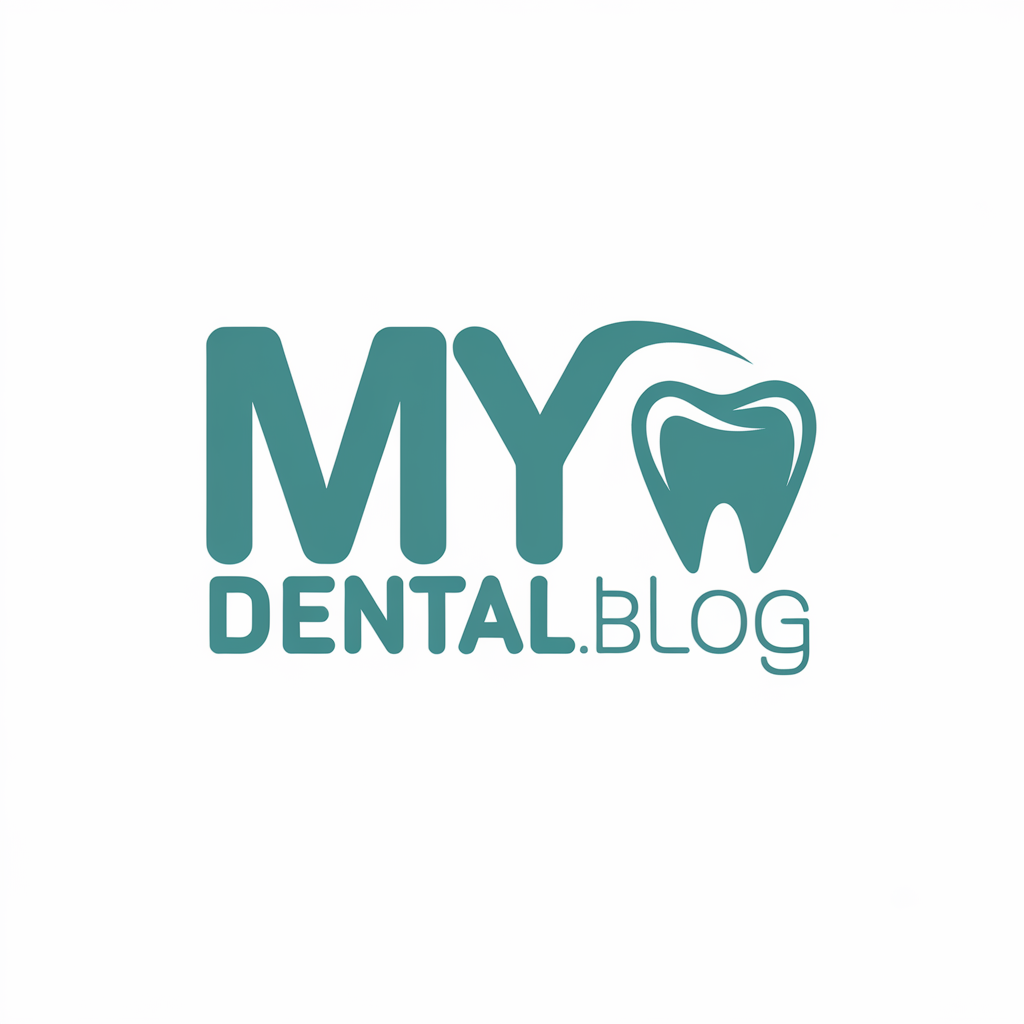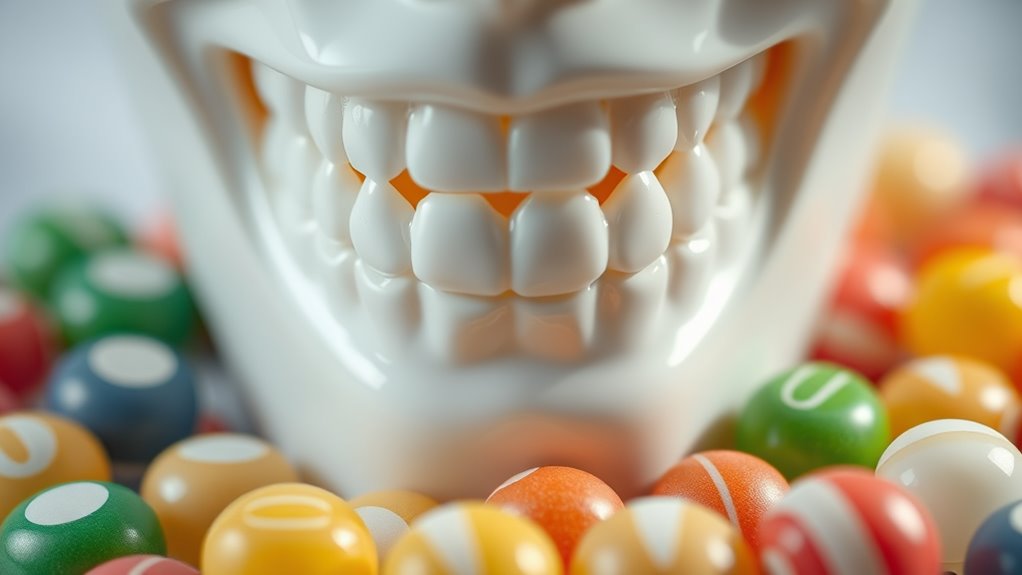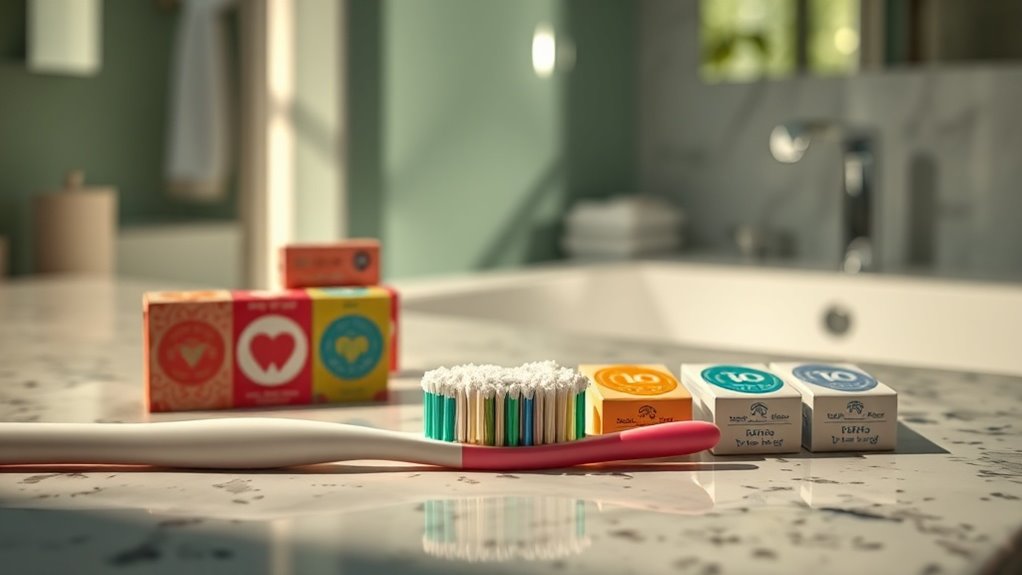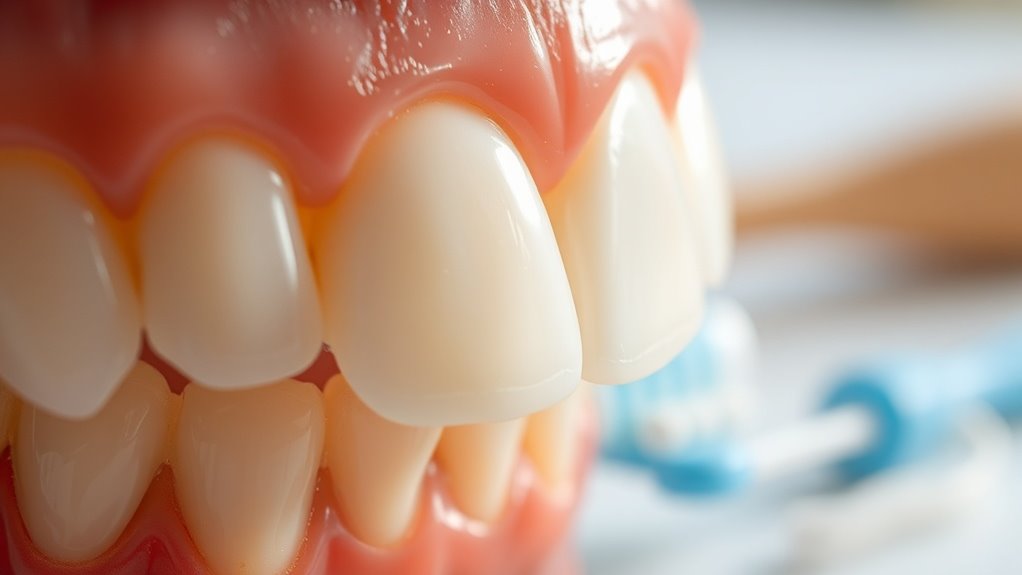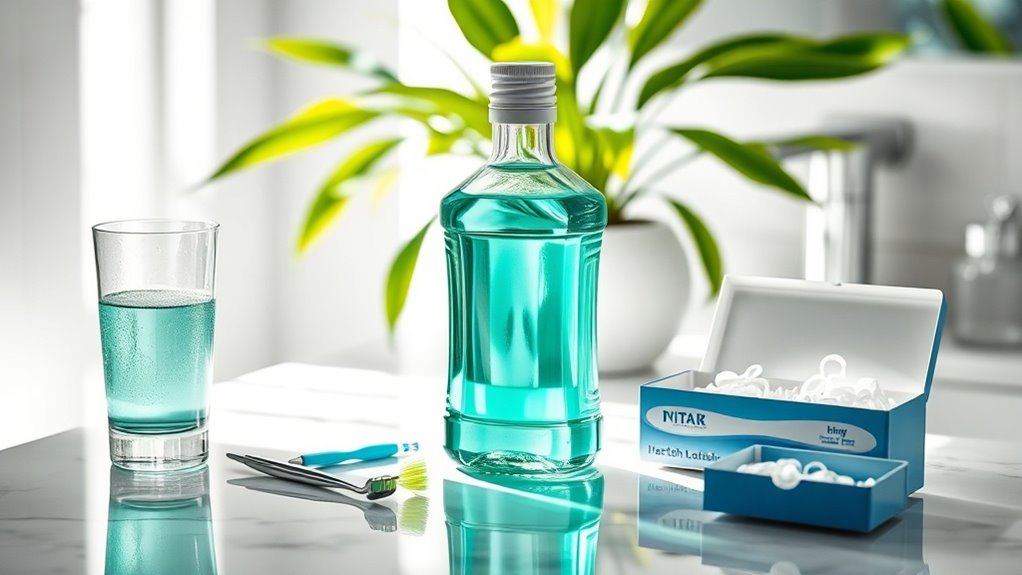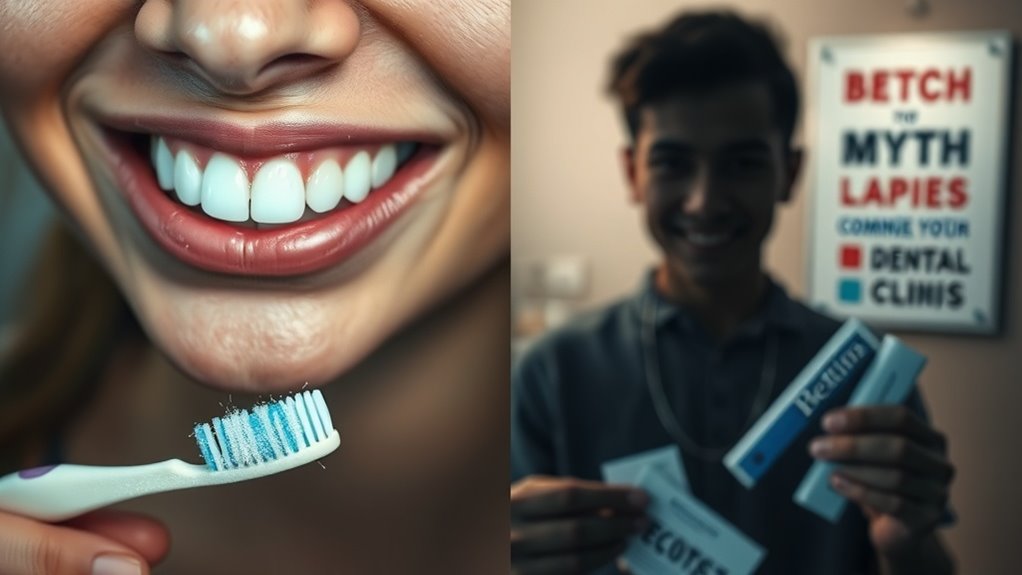Why That Sugar-Free Label Doesn’t Always Mean Safe for Teeth
A sugar-free label doesn’t guarantee safety for your teeth. Some substitutes can harm dental health while maintaining a sweet taste. For instance, agave nectar is acidic and can erode enamel, while certain sweeteners like sorbitol promote cavity-causing bacteria. Plus, many sugar-free products contain harmful acids that impact oral health. It’s essential to check ingredient lists carefully. Understanding these risks can lead you to make smarter choices regarding sugar-free options and how they affect your dental well-being.
Understanding Sugar-Free Products
As you explore the world of sugar-free products, it’s essential to understand what these labels really mean.
The sugar-free myth can mislead you into thinking these items are always safe for dental health. Sugar substitutes vary in composition, and some can still harm your teeth.
Always check ingredient lists and research the potential effects of these products before making informed choices for your dental well-being.
Common Sugar Substitutes and Their Effects
When it comes to sugar substitutes, not all are created equal, and their effects on dental health can vary significantly. Here’s a quick overview of common substitutes:
| Sugar Substitute | Dental Effects |
|---|---|
| Stevia | Non-cariogenic |
| Aspartame | Generally safe |
| Sucralose | Non-cariogenic |
| Agave Nectar | Acidic, potential risks |
Additionally, it’s important to be aware that some substitutes, like soft drinks and energy drinks, can still contribute to gum health issues despite being sugar-free.
The Role of Acidity in Oral Health
Acidity plays a significant role in oral health, impacting both tooth enamel and overall dental integrity.
When you consume acidic foods or beverages, they can erode enamel, making teeth more susceptible to decay.
It’s essential to balance acidic intake with neutralizing options, such as water or dairy, to maintain a healthy oral environment and protect your teeth from potential damage. Additionally, carbonated drinks can contribute significantly to enamel erosion due to their high acidity levels.
How Sugar-Free Does Not Mean Cavity-Free
While the absence of sugar in a product might suggest it’s safe for your teeth, this isn’t always the case.
Many sugar-free items contain acids or other sweeteners that can harm your enamel. Some substitutes—like sorbitol or maltitol—can promote bacteria growth, leading to cavities. It’s essential to be aware that ingredients like sodium lauryl sulfate can disrupt mouth pH and contribute to enamel erosion.
Always read labels carefully and consider the overall ingredients to protect your dental health effectively.
The Importance of Regular Dental Check-Ups
Regular dental check-ups are essential for maintaining optimal oral health and preventing potential issues. They allow your dentist to catch problems early, ensuring your teeth and gums remain in good condition. Early detection of dental issues can also prevent serious health issues associated with untreated problems.
| Benefit | Frequency | Impact |
|---|---|---|
| Cavity detection | Every 6 months | Reduces severity |
| Gum health assessment | Every 6 months | Prevents disease |
| Oral cancer screening | Annually | Early intervention |
Making Informed Choices for Dental Well-Being
Maintaining your dental health goes beyond just routine check-ups; it also involves making informed choices about the products you use and consume.
Read labels carefully, as sugar-free doesn’t always mean tooth-friendly.
Look for alternatives that minimize acidity and contain natural ingredients. Regularly consuming sugary soft drinks can lead to increased risk of cavities and gum disease.
Your awareness can protect your teeth, ensuring you choose products that genuinely contribute to your long-term dental well-being.
